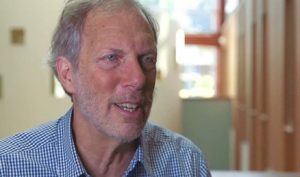- by: Deepa Pullanikkatil ~ Founder, Abundance
 “The tragedy of the commons” was the first topic in the subject- environmental science at my university. Although I agree with Hardin (1968) that the “Tragedy of the Commons” is foreseeable with uncontrolled population growth and pollution which is threatening life as we know it. I am unconvinced about his counsel on privatisation of land as a means to better manage the environment. Which implies that communal land would be more difficult to manage and privatisation of land is the answer for improved environmental management.
“The tragedy of the commons” was the first topic in the subject- environmental science at my university. Although I agree with Hardin (1968) that the “Tragedy of the Commons” is foreseeable with uncontrolled population growth and pollution which is threatening life as we know it. I am unconvinced about his counsel on privatisation of land as a means to better manage the environment. Which implies that communal land would be more difficult to manage and privatisation of land is the answer for improved environmental management.
In Africa, historically, land belonged to the community that lived on it. Land was communal and communalism promoted sharing of resources and managing them together. Humans and animals were not separate from the environment and communalism encouraged a collective sense of responsibility to conservation. It runs far deeper, into African way of thinking and philosophy, into cultural beliefs, ethics, values and indigenous knowledge.

A co-managed forest in Liwonde, southern Malawi (above) compared to one that is managed by the State (below) a few kilometres away.
When we talk about communalism, the African philosophy of “Ubuntu”, which is an Nguni Bantu term meaning “I am because you are” is of relevance. Ubuntu is often translated as “humanness,” and “humanity towards others,” but is often used in a more philosophical sense to mean “the belief in a universal bond of sharing that connects all humanity”. “Umuntu ngumuntu ngabantu”
In Zulu language, is literally translated as “a person is a person because of people”. Nelson Mandela and Archbishop Desmond Tutu were very influential among other people in promoting Ubuntu philosophy. Desmond Tutu has explained Ubuntu as meaning “My humanity is caught up, is inextricably bound up, in yours .”That implies that because we are all part of a greater whole, hence we are all interconnected. Human existence depends on interconnectedness and not on isolation. This interconnectedness can be extended from between humans to include the land and the environment in which humans live.
Rural communities in Africa depend on natural resources in their livelihood, therefore, how land is managed is of particular concern as it has human well-being implications. Communities such as the San people, who lived as close as possible to nature exhibit the spirit of communalism and Ubuntu. In fact, their tribes do not have Chiefs and their spirit of community is so strong that they make decisions for the tribe based on consensus. They live in such harmony within themselves and in nature and are a living testimony that it is indeed possible for people to come together to solve problems collectively for the greater good of their community and the environment. It is possible to practise Ubuntu and live harmoniously and thrive. Read more
- by: Marcus Rolle & Alexandra Boutri
 Brexit, the rise of Donald Trump and the emergence of a new right-wing radicalism in both Europe and the United States signify fundamental developments in the political and ideological landscape of Western societies, while at the same time, there is a resurgence of extreme nationalism and authoritarian politics virtually all around the world. For an understanding and explanation of some of these disturbing developments and the alternatives available, we spoke to political economist C.J. Polychroniou, editor of a forthcoming book consisting of interviews with Noam Chomsky, titled Optimism Over Despair: On Capitalism, Empire, and Social Change (Haymarket Books, 2017).
Brexit, the rise of Donald Trump and the emergence of a new right-wing radicalism in both Europe and the United States signify fundamental developments in the political and ideological landscape of Western societies, while at the same time, there is a resurgence of extreme nationalism and authoritarian politics virtually all around the world. For an understanding and explanation of some of these disturbing developments and the alternatives available, we spoke to political economist C.J. Polychroniou, editor of a forthcoming book consisting of interviews with Noam Chomsky, titled Optimism Over Despair: On Capitalism, Empire, and Social Change (Haymarket Books, 2017).
Marcus Rolle and Alexandra Boutri: Today’s political landscape in many advanced capitalist societies is marked by the rise of a new right-wing populism centered around anti-immigrant sentiment, xenophobia and extreme nationalism fueled mainly by the antiglobalization rhetoric of authoritarian political leaders. We’d like to start by asking you to put in context the contradictions of global capitalism and the emergence of what has come to be known as the “alt-right.”
C.J. Polychroniou: For quite some time now, there have been clear and strong indications across the entire political and socioeconomic spectrum in advanced Western societies that the contradictions of capitalist globalization and the neoliberal policies associated with them have reached an explosive level, as they have unleashed powerful forces with the capacity to produce highly destructive outcomes not only for growth, equality and prosperity, justice and social peace, but concomitant consequences for democracy, universal rights and the environment itself. Indeed, not long after the collapse of the former Soviet Union and its “communist” satellites in Eastern Europe — a development which led to such unbounded enthusiasm among supporters of global neoliberal capitalism that they embarked on an audacious but highly dubious course of (pseudo) intellectual theorization to pronounce the “end of history” — it became quite obvious to astute observers that the forces unleashed by capitalism’s inner dynamism and the dominant capitalist states, with the US imperial state at the helm, were more attuned to the brutalities of societal regression, economic exploitation, war and violence than to the subtleties of socioeconomic progress, geopolitical stability and environmental sustainability.
To be sure, we now live in a world of unparalleled economic inequality coupled with massive economic insecurity and dangerously high levels of unemployment (especially among the youth), all while the depletion of natural resources has reached highly alarming rates and climate change threatens the future of civilization as we know it. All these developments are interconnected as they are fuelled by globalization’s imminent contradictions, but ultimately sustained by actual government policies and measures that cater almost exclusively to the needs of the wealthy and the concerns of the corporate and financial world. In the meantime, authoritarianism is reestablishing a foothold in many Western nations just as the social state is being reduced to the bare bone under the pretext of fiscal discipline.
Yet, despite poll results showing rising support for socialism in the US, especially among millennials, growing discontent with the current economic order has thus far resulted not in a new socialist era but in the rise of ultranationalist leaders like Donald Trump who deploy rhetoric shrouded in racism and anti-immigration sentiment.
In France, Marine Le Pen is playing on similar strains of xenophobia and ultranationalism, arguing that “division is no longer between left and right … but between patriots and believers in globalization.”
What is called the “alt-right” is in some ways a new phenomenon in the sense that, unlike conservatives and neoconservatives, the new right-wing radicalism belongs expressly in the “antiglobalization” camp. But the “alt-right’s” grievance is not with capitalism itself. Instead its adherents blame economic globalization and immigration for their woes. The strengthening of this right-wing antiglobalization movement was behind Brexit and Trump’s presidential victory and can explain the resurgence of authoritarian, xenophobic political leaders in countries like France, Austria, Hungary, Italy and Germany, to name just a few.
Read more




Prof.dr. Robert Pollin
Trump made specific promises to many of the voters who were instrumental in getting him elected — some of whom are people living in poverty, thanks in part to the impacts of globalization. Yet, his economic plan will do nothing for most Americans, argues Robert Pollin, distinguished professor of economics and codirector of the Political Economy Research Institute at the University of Massachusetts at Amherst, in an exclusive interview for Truthout. Instead, Pollin says, Trump’s plans will make the rich richer. What should we be doing instead? Pollin lays out the reality, explaining that an economic plan that will increase employment, provide higher wages and protect the environment requires, among other things, an industrial policy, increasing the minimum wage, strengthening unions and implementing a Green New Deal agenda.
C.J. Polychroniou: Trump’s economic plan is supposedly about “making America great again.” We know that his tax cuts and deregulation proposals will be an extra bonus for the big corporations and the super-rich, but what’s in it for the average American worker who has been experiencing stagnant wages for the past 40 years, economic insecurity, and a declining standard of living?
Robert Pollin: Trump won the election in large part because he spoke to the visceral anger within the US [white] working class over the conditions you describe — two generations in which average working-class incomes have stagnated while inequality has soared, millions of good manufacturing jobs have been lost and strong communities have been brought down. But it wasn’t just that Trump recognized this anger. It was equally that, for a generation, the Clinton Democrats have been the party of Wall Street and free trade, while their support for the US working class has been tepid and back-handed.
Of course, the fact that Trump spoke to this [white] working class anger doesn’t mean that he actually cares about the US working class, or, more importantly, that he has a program that will deliver rising well-being for them. Some of Trump’s key proposals are to: 1) bring back manufacturing jobs by eliminating burdensome regulations on business and fight against unfair foreign competition, especially from China; 2) stimulate jobs, especially in construction, through a huge infrastructure investment program; and 3) deport undocumented workers, who Trump says are stealing US-born workers’ jobs. Read more



 Donald Trump ran a campaign to “make America great again,” promising the creation of high-paid manufacturing jobs and the restoration of the middle class. Yet, his economic policies will most likely make things worse for average American workers and deal a further blow to the environment, says economist Michael Meeropol, an NPR commentator and author of Surrender: How the Clinton Administration Completed the Reagan Revolution. Michael Meeropol is the oldest son of Julius and Ethel Rosenberg.
Donald Trump ran a campaign to “make America great again,” promising the creation of high-paid manufacturing jobs and the restoration of the middle class. Yet, his economic policies will most likely make things worse for average American workers and deal a further blow to the environment, says economist Michael Meeropol, an NPR commentator and author of Surrender: How the Clinton Administration Completed the Reagan Revolution. Michael Meeropol is the oldest son of Julius and Ethel Rosenberg.
C.J. Polychroniou: Donald Trump’s economic policies are not simply controversial; they constitute a neoliberal nightmare. His policies revolve mostly around corporate tax cuts, tax cuts for people with high incomes and investments, deregulation and selective protectionism. Assuming the Trump administration can succeed with these objectives, what, in your view, would be the most likely effects of these policies on the US economy?
Michael Meeropol: It is essential to separate Trump (the man) from the policies proposed by the Trump administration. Trump, the man, displays “bright shiny objects” that unfortunately divert us from the substance of the actual policies…. The national media and too many of the opposition are diverted by his outrageous lies, his grandiose promises, his bombast and his dangerous authoritarianism. These are the “bright shiny objects” but they have almost nothing to do with the substance of [his] proposed policies.
Your question brings focus where it should be — the neoliberal content of his administration’s proposals. With the possible exception of the selective protectionism he promised during the campaign, [his] economic policy proposals are extensions of traditional neoliberal policies that date back to Ronald Reagan. These policies were enabled by Bill Clinton (see my book Surrender and Bob Pollin’s book Contours of Descent), expanded by George W. Bush and not forcefully countered by Barack Obama. The failure to include a public option in the Affordable Care Act is one glaring example.
The neoliberal content of the Trump administration’s policies comes from Paul Ryan, the Club for Growth, the Heritage Foundation, the Chamber of Commerce … this is the policy-planning apparatus of the American ruling class.
(Anyone who doubts what I just said, check out the Who Rules America? website. G. William Domhoff has been documenting who rules America since the late 1960s. Here is a recent piece with relevance today.)
In a recent Washington Post article, the first round of proposed budget shifting by the Trump administration is detailed — a massive transfer of discretionary budget spending to defense and away from everything else. This is more extreme than the 1981 Reagan budget proposals. The failed “repeal and replace” for the Affordable Care Act was similar to efforts proposed in the past — partial privatization of Social Security — replacing the guarantees of Medicare with vouchers (called “premium support” in one of the “Ryan budgets” proposed during the Obama Administration). “Welfare reform” signed into law by Bill Clinton turned the old AFDC [Aid to Families with Dependent Children] program into a set of fixed block grants to the states. Changing Medicaid from a guarantee to a state-administered stingy block grant as in the failed Ryan “Trumpcare” proposal would have a similar impact — reducing enrollment in one more means-tested entitlement program. All of these changes were efforts to dismantle the set of policies associated with the New Deal and Great Society.
Read more



 SAVUSA POEM Proceedings, Volume 1 – Rozenberg Publishers 2005 – ISBN 90 5170 587 5 – Soon complete online
SAVUSA POEM Proceedings, Volume 1 – Rozenberg Publishers 2005 – ISBN 90 5170 587 5 – Soon complete online
Contents
Part I: – The history of the relationship between the Vrije Universiteit and South Africa
* Introduction – Gerrit Schutte & Harry Wels
* The Vrije Universiteit & South Africa: 125 years of sentiments and good faith – Gerrit Schutte
* The Vrije Universiteit and South Africa since 1972: Political and organisational developments – Harry Brinkman
* Can ‘new’ meet ‘old’? VU-South Africa, 1976-present: Development cooperation in Southern Africa – Kees van Dongen & Leo de Feiter
Part II: A ‘new’ science for a ‘new’ South Africa: four current academic projects
* A ‘new’ history for a ‘new’ South Africa – Gerrit Schutte
* ANNA and a ‘new’ lexicography for South Africa – Willy Martin
* A ‘new’ literature – Ena Jansen
* A new size of theology for a new South Africa – Bram van de Beek
Part III: A ‘new’ science for a ‘new’ South Africa: Reflections
* South Africa-VU: The meaning of traditions for future VU-policy in South Africa? – Carools Reineke
* Some trends in South African academic history: Changing contexts and challenges – Albert Grundlingh
* Political studies in South Africa. A personal perspective – Tom Lodge
* Stimulating research futures – Tessa Marcus
* International R&D cooperation with South Africa – Selected policy perspectives – Hendrik C. Marais’
* ‘New’ scientific practice in South Africa with special reference to land reform – Flip Smit
* The changing Higher Education landscape in South Africa – Daniel Ncayiyana
* Good neighbours and far friends; The Netherlands, Europe and South Africa – Peter Nijkamp
- by: Gerrit Schutte & Harry Wels (Eds.)

SAVUSA POEM Proceedings. Rozenberg Publishers 2005 – ISBN 90 5170 587 5
Introduction
In 2005 the Vrije Universiteit Amsterdam (VU) celebrates its 125th anniversary. It is a celebration in style: a yearlong programme which contains both scholarly elements – every faculty for instance has been asked to organise an international conference in a particular month of the lustrum year around a specific and fitting theme – and festive elements, like for instance an alumni-day ending with a concert of the world famous Portuguese singer Christina Branco. The celebrations are accompanied by the publication of a number of commissioned books about various historical aspects of 125 years of Vrije Universiteit Amsterdam. One of them is a study of the relations between the Vrije Universiteit Amsterdam and South Africa. This relationship dates back to the very beginning of the VU in 1880 – the year in which the First Anglo-Boer War started! The University History Committee asked historian Prof. G.J. Schutte to write this book, entitled De VU en Zuid-Afrika, 1880-2005.[i] The book has been published in December 2005.
In the book Prof. Schutte tells in detail the history of the relationship between the VU and South Africa. This relationship started 125 years ago, in 1880, as a result of the rediscovery by the Dutch of their Afrikaner broedervolk, and a kindred feeling of stamverwantschap (kinship) with the young nation of the Dutch Afrikaners, that was cherished for many decades. The Dutch ardently supported the Boer Republic’s struggle against British imperialism during the Anglo-Boer War of 1899-1902, and also the resulting movement for cultural, social and political emancipation of the Afrikaner people. For the VU academics, this affinity contained an extra value, that of sharing a common religion with the Afrikaners, a common Calvinist tradition and conviction. From 1900 onwards, the VU played an important role as alma mater for generations of Afrikaners, especially for theologians of the Nederduitse Gereformeerde Kerk and the Gereformeerde Kerk. The academic knowledge that was acquired at the VU, was used to develop the South African universities (Stellenbosch and Potchefstroom, and many more) and Afrikaner society and culture.
In about 1960, a new period in VU history was set in motion. A gradual movement away from Kuyperian tradition and the closed group of ‘Calvinists’ could be observed. Critical remarks were made with regard to Kuyper’s Encyclopedia, his philosophy of science, his political and social principles and practice (‘pillarisation’). A new stance was taken on the role of the Christian in society, also in matters of colonialism, racism and the relationship between the First and the Third World. The general western urge for democratisation in those years triggered a change in the ideas on academic education, research and academic policy. The VU, though known for its classical and sometimes patriarchical education system, had since its founding been conscious of its being indebted to the emancipation of the kleine luyden (‘common people’) and considered social awareness as a principle. Read more
 Brexit, the rise of Donald Trump and the emergence of a new right-wing radicalism in both Europe and the United States signify fundamental developments in the political and ideological landscape of Western societies, while at the same time, there is a resurgence of extreme nationalism and authoritarian politics virtually all around the world. For an understanding and explanation of some of these disturbing developments and the alternatives available, we spoke to political economist C.J. Polychroniou, editor of a forthcoming book consisting of interviews with Noam Chomsky, titled Optimism Over Despair: On Capitalism, Empire, and Social Change (Haymarket Books, 2017).
Brexit, the rise of Donald Trump and the emergence of a new right-wing radicalism in both Europe and the United States signify fundamental developments in the political and ideological landscape of Western societies, while at the same time, there is a resurgence of extreme nationalism and authoritarian politics virtually all around the world. For an understanding and explanation of some of these disturbing developments and the alternatives available, we spoke to political economist C.J. Polychroniou, editor of a forthcoming book consisting of interviews with Noam Chomsky, titled Optimism Over Despair: On Capitalism, Empire, and Social Change (Haymarket Books, 2017).






